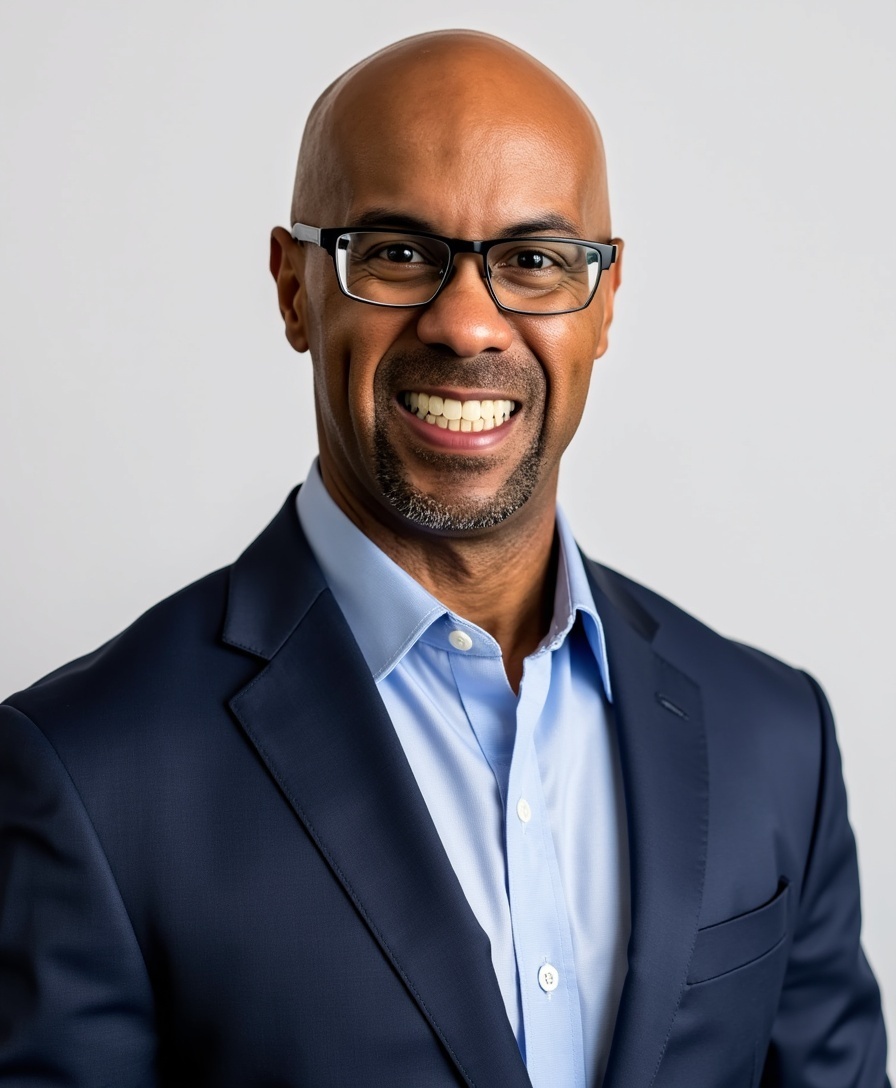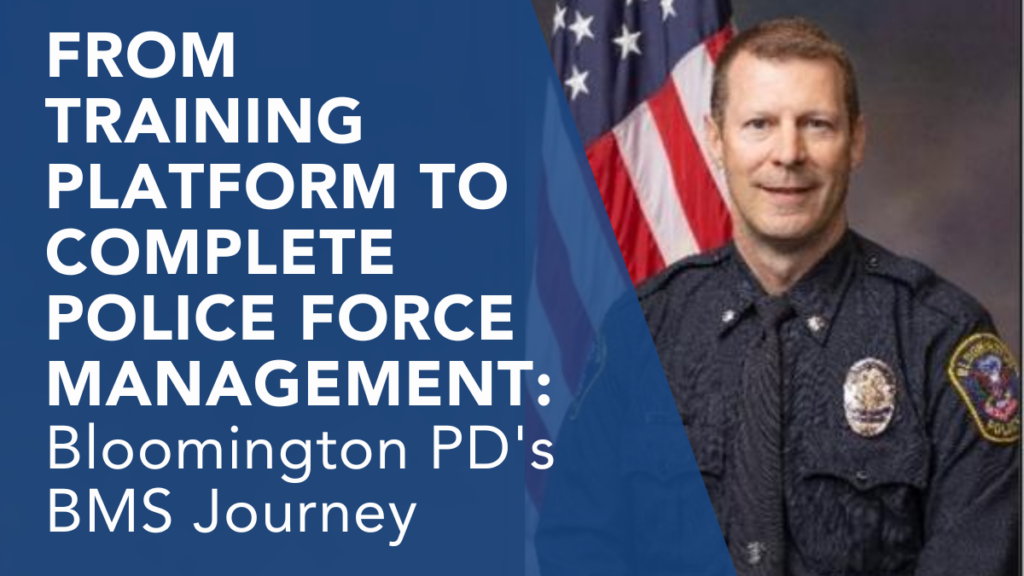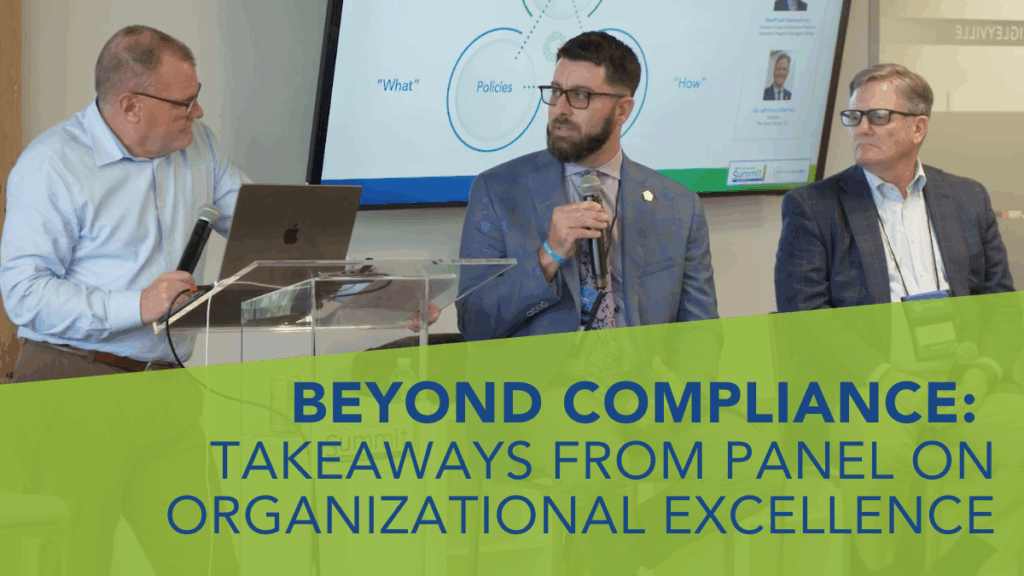From Protecting Communities to Transforming Policing
Posted
May 15, 2025
Share:
A Mission-Driven Career Transition
After a distinguished career in law enforcement spanning roles as Police Commander at Midlothian Police Department (TX), Chief of Police in Glenn Heights (TX), and Sergeant at Denton Police Department (TX), Vernell Dooley made a significant career transition to the private sector. Today, as Vice President of Strategic Partnerships at Benchmark Analytics, Dooley brings his extensive public safety leadership experience to help transform policing through data-driven wellness solutions.
Personal Experience Shapes Professional Mission
Dooley’s decision to join Benchmark Analytics wasn’t just a career move—it was deeply personal. As he shared in a recent interview, he was “the recipient of that type of intervention early in my career. I had a captain pull me aside and say, ‘Hey. We appreciate your work, but you’re definitely on the wrong track. And there’s some things that you need to do. There’s some things that you need to change so you can make sure that this is a successful career.”
That intervention changed the trajectory of Dooley’s career. Now, twenty years later, he’s working to ensure other officers receive similar support when they need it.
The Challenge: Mental Health in Law Enforcement
Like many law enforcement professionals, Dooley experienced firsthand how the profession traditionally approached mental health: “We did not talk about mental health. It definitely was a suck it up buttercup kind of a mindset.” When officers responded to traumatic incidents, they would briefly acknowledge the difficulty—”That was a bad call”—and move on without processing the emotional impact.
This culture of silence had serious consequences. As Dooley noted, officers “began to internalize a lot of the feelings” after exposure to traumatic incidents without having “an outlet to process the trauma.” The cumulative effect of this unprocessed trauma becomes evident when officers retire, as they “don’t return back to their families or society the way they were before they joined law enforcement.”
From Implementation to Innovation
What ultimately drew Dooley to Benchmark Analytics was his firsthand experience with their systems. “I had implemented Benchmark at the agency I retired from,” he explains, “and so I was very familiar with the benefits and advantages of the system, and how it focused on getting officers that were on the wrong track back on the correct path and really setting themselves up for success.”
For Dooley, Benchmark’s approach represents a significant evolution in how departments can support their officers. Instead of merely reacting to misconduct, their technology helps identify officers who need support before problems escalate.
A Data-Driven Approach to Officer Support
Dooley highlights what sets Benchmark apart from other solutions: “We are expanding our systems to identify those that need support. So going beyond identifying those that are about to have an adverse incident like myself years ago, but to identifying those officers that are in need of support so they can be overall in a better position, a better sort of space as it relates to their overall wellness.”
The company’s approach relies heavily on research and data science. As Dooley points out, what makes Benchmark unique is “our data scientist…having a team of very, very intelligent people looking at the data coming out of multiple agencies all across the country just to help law enforcement executives make data-driven decisions in how they manage their workforce.”

Beyond “Checking the Box”
When asked what advice he would give to departments looking to prioritize officer wellness, Dooley challenges leadership to go beyond superficial solutions: “Look at the current operations as it relates to how you’re tackling this very important issue of wellness within your department and ask yourself, are you just checking a box, or you’re actually doing something more?”
He notes that while “apps are great,” they’re often just “checking a box.” Real commitment means “going above and beyond to identify those officers that are suffering in silence and struggling to reach out.”
A Vision for the Future of Policing
Dooley’s passion for his work at Benchmark stems from a compelling vision: “I’m excited about putting the noble profession of policing in a different place. And what I mean by that is it would be great in ten years from now if we could say that we’ve driven down the incidence of officer suicides, that we’ve truly helped officers become better and be in a better place by identifying them early on and getting them the help and support they need.”
This vision—of creating lasting, meaningful change in how law enforcement approaches mental health and officer wellness—represents the culmination of Dooley’s career journey from officer to executive leader to innovator.
The Path Forward
For Vernell Dooley, joining Benchmark Analytics represents more than a career transition—it’s an opportunity to transform a profession he deeply respects. By combining his firsthand understanding of law enforcement challenges with cutting-edge data science and research-based approaches, he’s working to create a future where officer wellness is prioritized and supported through every stage of a law enforcement career.
As departments nationwide grapple with recruitment, retention, and community trust challenges, Dooley’s work with Benchmark Analytics offers a promising path forward—one that recognizes the essential humanity of those who serve and protect our communities.
*This blog post was generated with the help of artificial intelligence.
Ready to Experience the Benchmark Difference?
Benchmark Analytics and its powerful suite of solutions can help you turn your agency’s challenges into opportunities. Get in touch with our expert team today.



